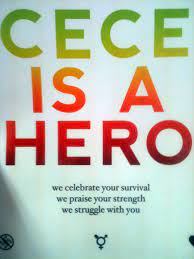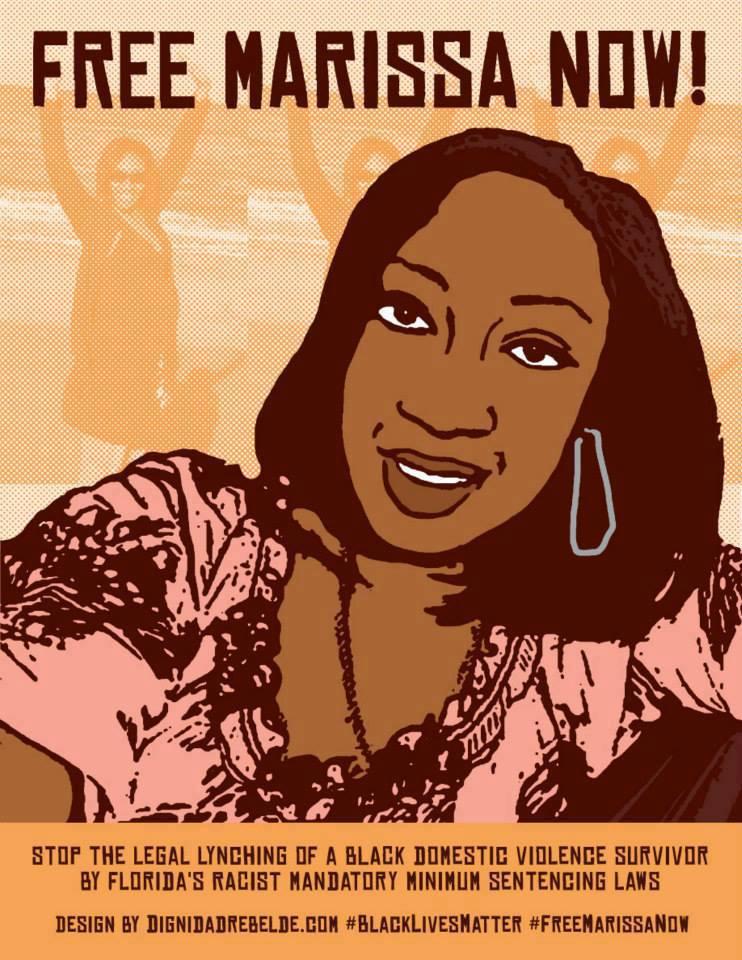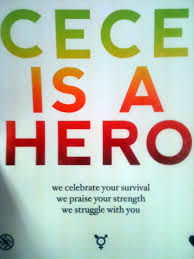
CeCe McDonald is 25. Last week, she was released from prison after serving two-thirds of her sentence. In June 2011, CeCe defended herself against a violent, racist, transphobic attack from a neo-Nazi and his companions. The neo-Nazi, Dean Schmitz, died in the attack. CeCe was wounded but survived. Because of her strength and survival, she was tried and imprisoned. CeCe’s trial was a true miscarriage of justice. Evidence such as Schmitz’ history of participation in fascist movements and swastika tattoos, was ruled inadmissible. Even before the trial, friends and allies rallied around CeCe and created a support committee.
In early 2012 my friend Diana and I first met about collaborating on a fundraiser for CeCe’s legal needs, and then after her sentencing, her prison canteen. But what we really wanted was to help contribute to a secure future for CeCe after release. We raised somewhere between one and two thousand dollars. The support response to CeCe was so overwhelming that before her release, she wrote on her blog asking people to donate to other incarcerated people who were in more urgent need of funds.
This week, I mailed the remaining Cece is a Hero letterpress prints to CeCe via the MN Transgender Health Coalition. Diana and I, along with CeCe’s vast legion of supporters, hoped for a day when CeCe would be released from prison “safe, comfortable, and cared for.” It is beautiful to see that day come.
I relished the sight of CeCe and her companions walking out of prison. But I also remember the obstacles CeCe will face as a person who has been incarcerated. Mostly, I am listening to what CeCe has to say.
The crux of her message emerged in an interview with Melissa Harris-Perry. Present for the interview was CeCe, Katie Burgess (her supporter and friend from MN Trans Health Coalition), Laverne Cox (trans activist and star of Orange is the New Black, currently producing a documentary about CeCe’s story), and Rea Carey (Executive Director of the National Gay and Lesbian Task Force). The entire conversation is inspiring, lively, and absolutely worth watching but the real heart of it emerges in the tension between what Carey and CeCe have to say. Carey affirmed the fight for special prisons for transgendered people. The resounding message from CeCe, Burgess, and Cox, was NO.
CeCe has been standing strong against all prisons since the start. Writing from inside the walls of a men’s prison, CeCe emphasized that she didn’t want “supporters to launch long-term campaigns on her behalf that exceptionalize her situation.” Shortly after her sentencing, CeCe wrote that the real issues are the ones that affect all prisoners. Just as Cox said on MSNBC, there is a cultural pipeline that puts transwomen in prison, particularly transwomen of color and especially black transwomen. “We’ll just build more prisons” is a familiar response to activists, whether they are seeking justice for incarcerated people with mental illness or mothers in prison and resisting the building of mother/child units. Radical, revolutionary thinking says: no compromise in the face of boutique prisons. No compromise when the prison industry decides you’re an emerging market.
As CeCe suggested, if you are able to donate to folks like the Rainbow Defense Fund, or if you are able to commit to writing a person in prison via Black and Pink, please consider doing so.
I read CeCe’s blog posts from prison. They are insightful, full of heart, life and resistance. She shared poetry, confronted electoral politics, and dissected power issues around straight cismen who date transwomen. Now she is free and we have the honor of hearing her voice and seeing her strength. There’s so much we can all learn from CeCe.
Remember: “prisons are not safe for anyone.” Remember: if they tell you they’re going to build a special prison for people like you, say NO.
APAP All Prisoners Are Political
(Image Credit: Astropressdc.com)



